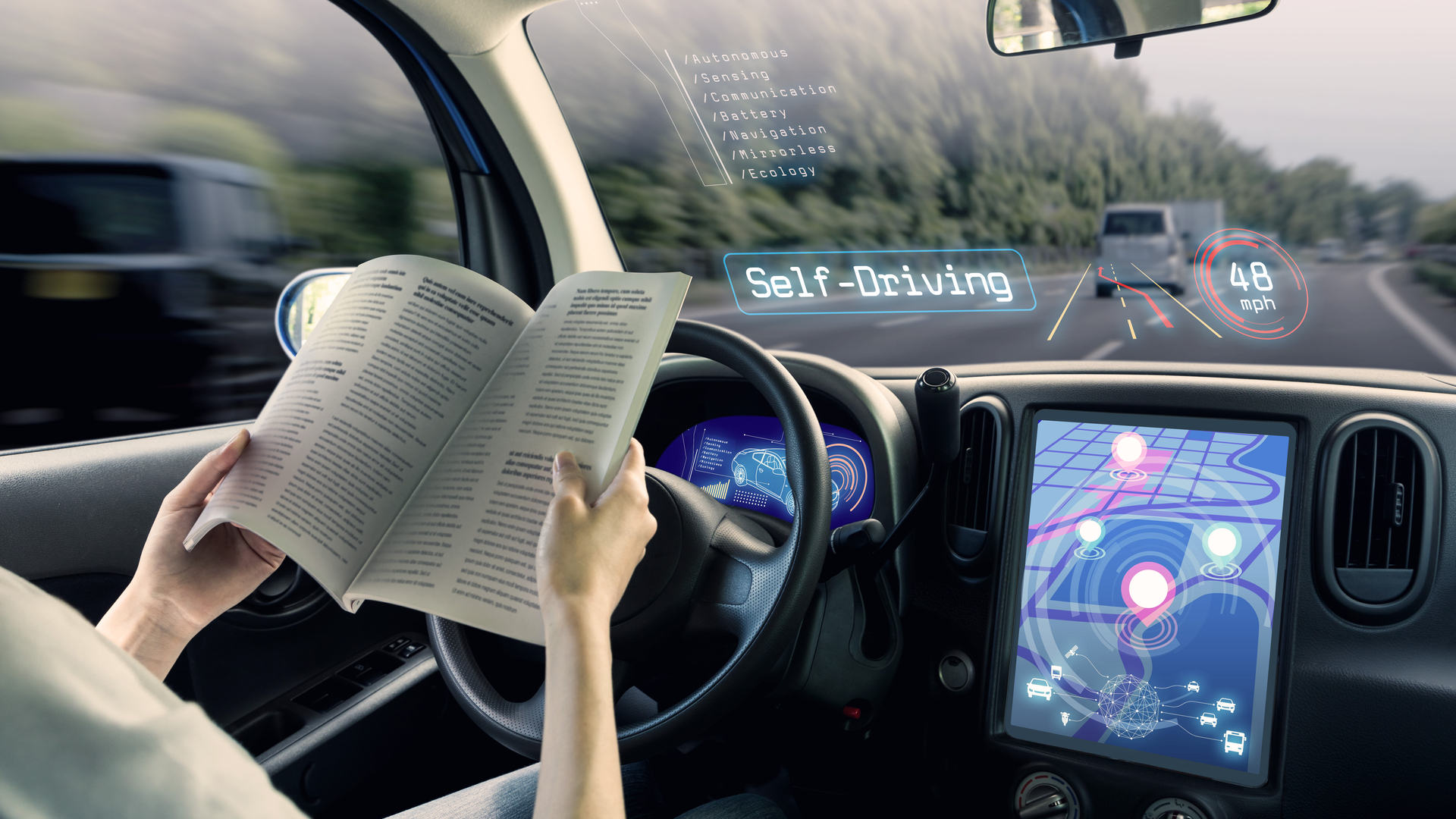UK Space Agency and O2 partner on high-speed autonomous car network
A fast, high-bandwidth network will be needed to cope with the 4TB of data per hour driverless vehicles create


The UK Space Agency has joined forces with O2 to develop high-speed data connections to ensure future driverless can maintain network connections as they travel into those rural areas where mobile signals have traditionally been poor.
Dubbed Project Darwin, the idea is to use next-generation telecoms satellites and 5G connectivity to provide the infrastructure for both connected and autonomous vehicles (CAVs) to communicate with each other and with the road infrastructure around them.
Given O2 research has shown that CAVs are expected to generate some 4TB of data per hour, there will be a need for next-generation connectivity that can deliver high-speed, seamless and robust data connections.
While self-driving cars are being developed with autonomous systems onboard, which will allow them to navigate roads without having a connection back to a central system or network, wider connectivity will help CAVs process data that can be used to keep track of UK road conditions, accidents and traffic flow.
"Autonomous vehicles require robust high-speed mobile data connections to operate effectively, so building the technology to link autonomous vehicles to telecoms satellites means that you will be able to take your car wherever you want to go, not just where there's decent mobile signal," said Catherine Mealing-Jones, director of growth at the UK Space Agency.
The partnership will also involve researchers from Oxford and Glasgow, as well as Spanish satellite operator Hispasat and the Darwin Innovation Group Oxford.
The initial phase of Project Darwin will be based at the Harwell Science and Innovation Campus in Oxfordshire and will be entering a design and definition phase next month. This will include looking at elements such as vehicle-SIM platforms and AI neural network integration.
Sign up today and you will receive a free copy of our Future Focus 2025 report - the leading guidance on AI, cybersecurity and other IT challenges as per 700+ senior executives
"The research taking place the Harwell during the next four years will be vital in the creation of new transport ecosystems for the UK public and companies that will offer the services," said Derek McManus, O2's chief operating officer.
Meanwhile, the Darwin project will also develop an Advanced Research in Telecommunications Systems (ARTES) 'partner study' programme supported by UK government funding, to define what other elements will be needed to deliver upon Darwin's objectives as a whole.
Roland is a passionate newshound whose journalism training initially involved a broadcast specialism, but he’s since found his home in breaking news stories online and in print.
He held a freelance news editor position at ITPro for a number of years after his lengthy stint writing news, analysis, features, and columns for The Inquirer, V3, and Computing. He was also the news editor at Silicon UK before joining Tom’s Guide in April 2020 where he started as the UK Editor and now assumes the role of Managing Editor of News.
Roland’s career has seen him develop expertise in both consumer and business technology, and during his freelance days, he dabbled in the world of automotive and gaming journalism, too.


